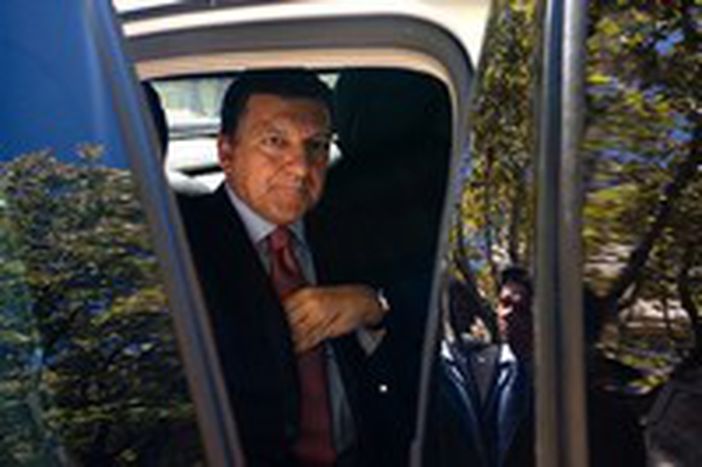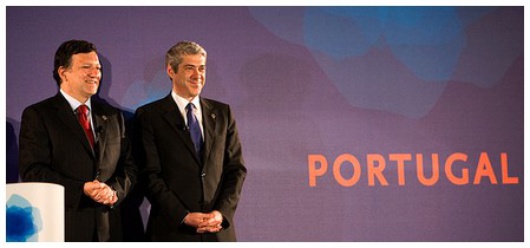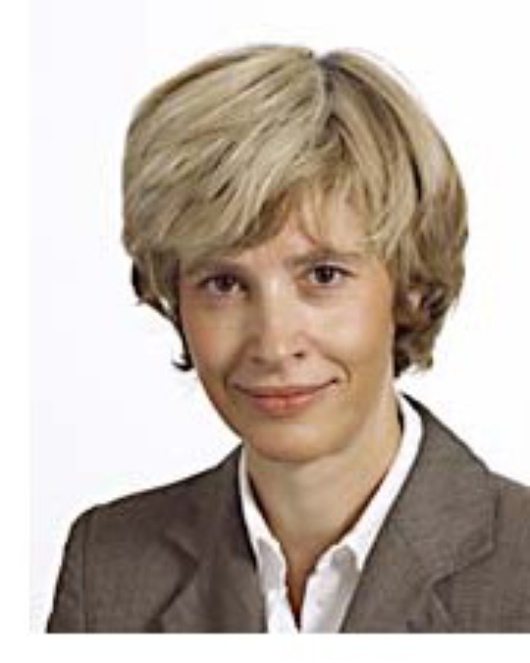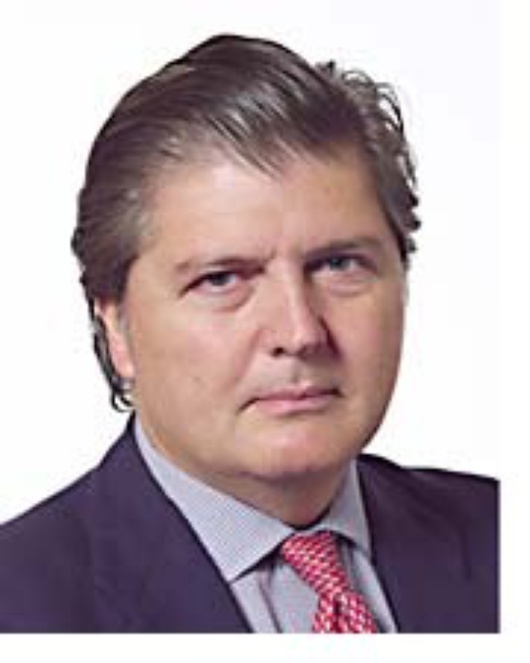
Barroso: see you in 2009?
Published on
Translation by:
 joanne ashworth
joanne ashworth
The Portuguese and current president of the European Commission could be re-elected after his mandate expires in June 2009
In 2006, it seemed like José Manuel Barroso's political career was over after three and a half years at the head of the commission. A lacklustre performance during the implementation of institutional reforms to the moribund constitution. Not forgetting the shadows cast by the fires of Iraq - lit at the ill-fated meeting in the Azores that he organised, which both created a black mark against Europe’s image.
The young socialist minister inspired the confidence of Portugal's citizens before he became prime minister with only modest economic success.
'He is only there thanks to services rendered,' maintains Marina Almeida, referring to the Azores episode in 2003. We are at the offices of the Portuguese Communist Party in Lisbon, native city of Barroso. 'He is a puppet in the hands of the big European countries,' the communist insists, with whom Barroso, paradoxically, shared the same ideology up until a couple of decades ago. 'The EU almost always nominates people from smaller countries to head the commission so that they can control them.'
Phoenix reborn
 Today, in contrast, he confidently walks the corridors of Europe and has received prizes in a number of countries. Thanks to an alliance with his Portuguese political opponent, Jose Sócrates, the last six months of the Portuguese presidency of the EU will be recorded in history for the approval of the reform treaty.
Today, in contrast, he confidently walks the corridors of Europe and has received prizes in a number of countries. Thanks to an alliance with his Portuguese political opponent, Jose Sócrates, the last six months of the Portuguese presidency of the EU will be recorded in history for the approval of the reform treaty.
However, as Íñigo Méndez de Vigo, conservative Spanish MEP and a member of the European Parliament’s commission on constitutional affairs explains, 'He did not play a vital role in the approval of the treaty. It was clear to the commission that it was an issue for the national governments and so they decided on another plan.'
The treaty was pushed forward thanks to another conservative politician, current French president Nicolas Sarkozy. Without abandoning his conciliatory tone and low profile, Barroso defended the independence of the community's institutions, especially that of the European Central Bank, but respecting that of the national institutions.
Barroso has driven his commissioners towards markedly liberal policies, especially in the areas of transport, energy and telecommunications, and has seen the commission involved in the recent ruling in the landmark case against Microsoft. He has even managed to disassociate himself from the Iraq debacle by claiming to have been 'duped' by information given at the Azores summit.
Portugal
 Wender, a young resident of Lisbon, waits on tables at a bar at the viewpoint of the Graça, a neighbourhood in the city centre, from noon until the early hours of the morning. 'I’m not really in to politics,' she says, 'but Barroso seems very serious about his job, a good politician.' What if he returned to Portuguese politics now that Sócrates is suffering due to reforms that he intends to introduce extending 'flexicurity'? 'It is as reasonable as opting for a second mandate as president of the European commission,' she says. 'Here in Portugal,' she commented minutes before the communist Almeida, 'an international profile allows you to do anything.'
Wender, a young resident of Lisbon, waits on tables at a bar at the viewpoint of the Graça, a neighbourhood in the city centre, from noon until the early hours of the morning. 'I’m not really in to politics,' she says, 'but Barroso seems very serious about his job, a good politician.' What if he returned to Portuguese politics now that Sócrates is suffering due to reforms that he intends to introduce extending 'flexicurity'? 'It is as reasonable as opting for a second mandate as president of the European commission,' she says. 'Here in Portugal,' she commented minutes before the communist Almeida, 'an international profile allows you to do anything.'
António Fernándes owns a kiosk on Avenida da Liberdade. 'If Barroso came back to Portugal, it would not be to become prime minister again, but rather to become president,' he says, an opinion shared by many people on the street. As it is not possible at the moment, 'I think it would be better if he opted for a second mandate in the commission.'
At 11pm, the Bairro Alto (old city centre) is a maze of streets bustling with young people out enjoying the night. It is autumn but the temperature is still around 23°C. Everyone is drinking in the streets, blocking the roads to cars. The conversation turns to politics. Edoardo, a student, says perceptively, 'In order to know if Barroso is going to opt for a second mandate you need to analyse any plans he has for long-term large-scale reforms.'
Long-term initiatives
'Up to now, businesses have benefited more from the single European market than citizens have.' This was part of Barroso’s opening speech on 20 November when he presented his package of initiatives to reform the single market. A plan which will take years to implement and includes a number of measures from protecting consumers to increasing public procurement contracts for small and medium sized enterprises. He also seems determined to liberalise the energy market, whatever the cost. These are all political projects drafted for the long-term.
 María da Assunção Esteves, a Portuguese MEP from the People’s Party and also a member of the commission on constitutional affairs, 'would be pleased if Barroso opted for a second mandate heading the Commission. She describes him as a 'spirited and tenacious' politician.
María da Assunção Esteves, a Portuguese MEP from the People’s Party and also a member of the commission on constitutional affairs, 'would be pleased if Barroso opted for a second mandate heading the Commission. She describes him as a 'spirited and tenacious' politician.  This is an evaluation that is partly shared by Méndez de Vigo: 'His efforts in pushing policies has been very positive, especially after inheriting such a difficult situation as the paralysis caused by the Santer Commission scandal and the weakness of Prodi’s Commission. However it would be premature to speak of re-election: one and a half years is a long time in politics and until today only one president has repeated a mandate: the Frenchman Jaques Delors.'
This is an evaluation that is partly shared by Méndez de Vigo: 'His efforts in pushing policies has been very positive, especially after inheriting such a difficult situation as the paralysis caused by the Santer Commission scandal and the weakness of Prodi’s Commission. However it would be premature to speak of re-election: one and a half years is a long time in politics and until today only one president has repeated a mandate: the Frenchman Jaques Delors.'
In 2009 there will be elections for not one, but three posts: president of the council, president of the commission, and minister for foreign affairs. 'As the EU is a consensual democracy,' he concludes, 'it is probable that the left and the right will agree to a balance.'
Photos: Barroso and Jose Sócrates in October 2007 (Miguel Angel Lopes Migufu/ Flickr), view of Lisbon city from the Alfama neighbourhood (Photo: miradourodetasmania.blogspot.com/ Flickr), conservative Portuguese and Spanish
MEPs Esteves and Méndez de Vigo (European parliament)
Translated from Durão Barroso en la cresta de la ola


